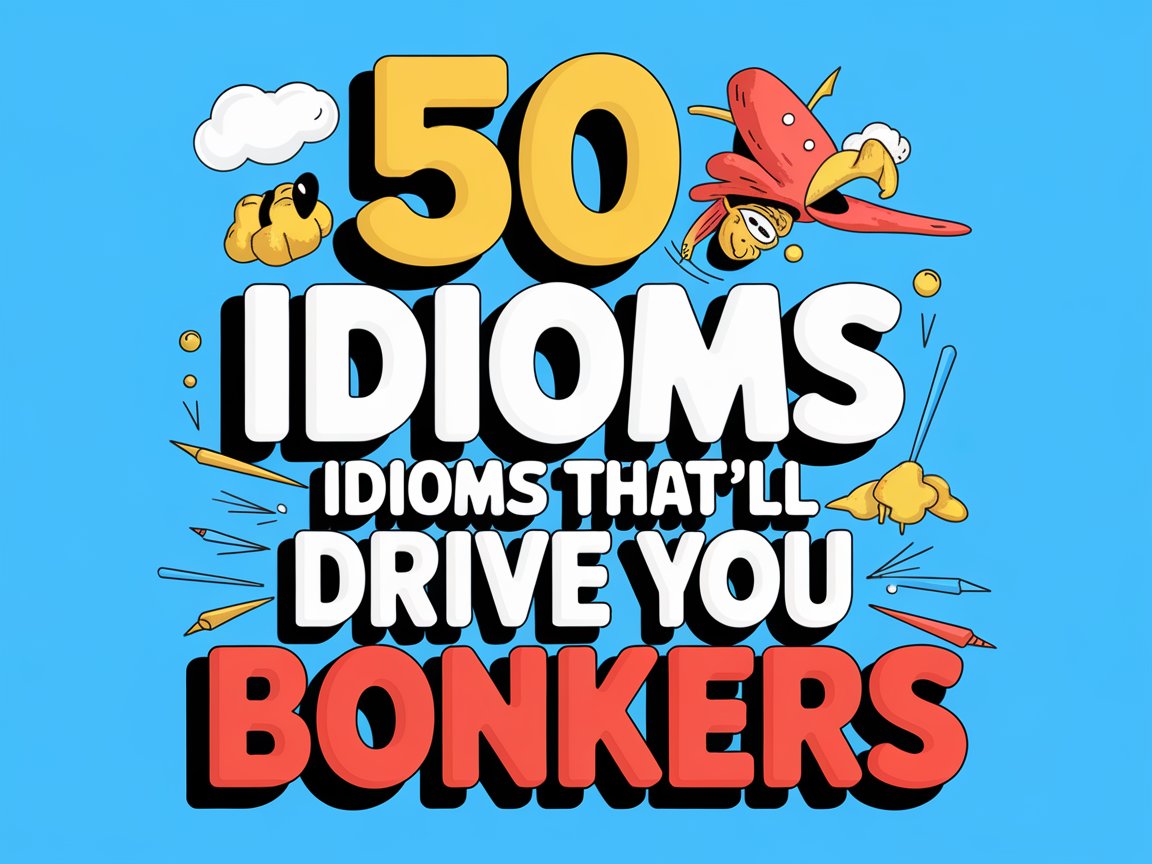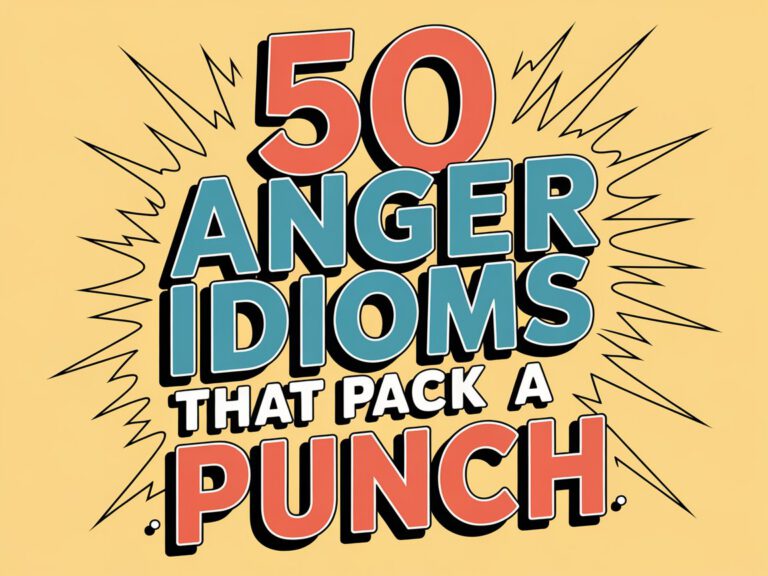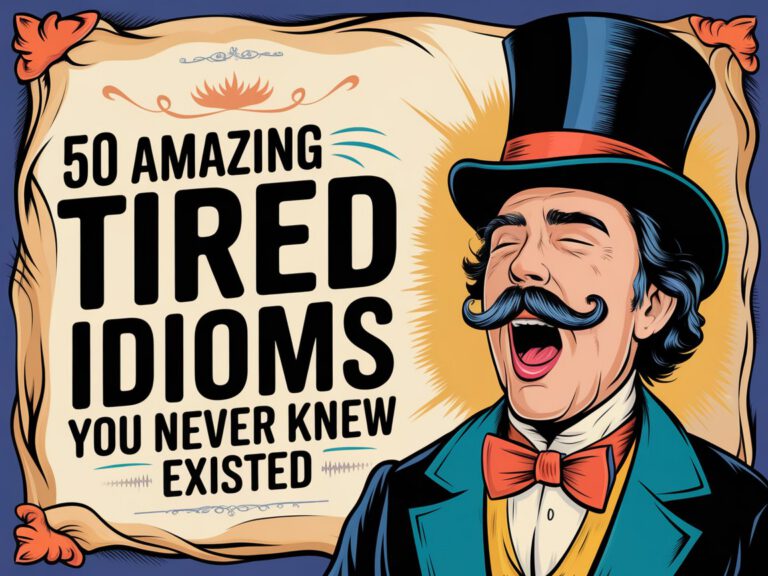50 Crazy Idioms That’ll Drive You Bonkers

Language is wonderfully mad – and we mean that in the best possible way! English is packed with colorful idioms that describe everything from mild eccentricity to complete lunacy. These expressions add spice to our conversations and help us paint vivid pictures with words.
The Science Behind Our Fascination with “Crazy” Idioms
According to linguistic research published in the Journal of Pragmatics, idioms related to mental states are among the most frequently used figurative expressions in English, appearing in both formal and informal contexts at rates exceeding 15% of all idiomatic usage. Dr. Sarah Chen, a cognitive linguist at Stanford University, notes: “Idioms describing mental states serve as linguistic safety valves, allowing speakers to discuss sensitive topics like mental health in socially acceptable ways while maintaining conversational flow.”
| Idiom Category | Usage Frequency | Origin Period | Regional Variation |
|---|---|---|---|
| Animal-based (mad as a hatter) | 35% | 1800s-1900s | Global |
| Body parts (lose one’s marbles) | 28% | 1900s-1950s | Primarily US/UK |
| Food-related (nutty as a fruitcake) | 18% | 1920s-1960s | US-dominant |
| Mechanical (screw loose) | 12% | 1940s-1980s | Universal |
| Abstract concepts (off the wall) | 7% | 1960s-present | Modern slang |
The Wild World of Crazy Idioms: From Mild to Completely Bananas
Classic “Mad” Expressions
1. Mad as a Hatter This famous idiom dates back to the early 1800s and has a surprisingly dark origin. Hat makers in the 18th and 19th centuries used mercury in their felt-making process, which caused neurological damage including tremors, mood swings, and erratic behavior.
“Ever since Janet started collecting rubber ducks, her friends think she’s mad as a hatter.”
Pro-Tip: This expression gained massive popularity after Lewis Carroll’s Alice’s Adventures in Wonderland featured the Mad Hatter character, cementing its place in English literature.
2. Off One’s Rocker Dating from the 1890s, this idiom originally referred to elderly people who spent their days in rocking chairs. When someone acted strangely, people would say they’d fallen “off their rocker.”
“You think you can learn Japanese in a week? You’re completely off your rocker!”
3. Barking Mad This British expression compares irrational behavior to a dog’s incessant barking. It suggests someone is making as much sense as a dog barking at nothing.
“His plan to dig a swimming pool with a teaspoon is absolutely barking mad.”
Animal-Inspired Craziness
4. Crazy as a Loon Loons are water birds known for their haunting, almost maniacal calls. This North American expression perfectly captures the essence of wild, unpredictable behavior.
“She’s been acting crazy as a loon since she won the lottery.”
5. Batty Short for “bats in the belfry,” this expression references the erratic flight patterns of bats in church bell towers.
“Uncle Bob’s idea to start a pet rock business seems pretty batty to me.”
6. Cuckoo Like the cuckoo clock that pops out unpredictably, this term describes someone whose behavior is equally erratic and unexpected.
“My neighbor is completely cuckoo – she talks to her garden gnomes every morning.”
7. Nutty as a Squirrel Squirrels’ hyperactive, seemingly chaotic behavior inspired this playful expression for describing someone acting silly or eccentric.
“The kids went nutty as squirrels when they saw the ice cream truck.”
Food and Drink Gone Wrong
8. Nutty as a Fruitcake Fruitcakes were traditionally dense with nuts and considered somewhat unusual desserts. This expression emerged in the 1930s American slang.
“Anyone who believes the earth is flat is nutty as a fruitcake.”
9. Bananas The exact origin is unclear, but “going bananas” likely comes from the idea of monkeys going wild for bananas, creating chaos in their excitement.
“The crowd went bananas when their team scored the winning goal.”
10. Crackers This British slang possibly comes from the explosive sound of Christmas crackers, suggesting someone’s mind has similarly “popped.”
“You must be crackers if you think I’m jumping off that bridge!”
Mechanical Malfunctions
11. A Screw Loose This mechanical metaphor suggests someone’s mental “machinery” isn’t working properly – a screw has come undone.
“Ever since the accident, people whisper that Joe has a screw loose.”
12. Not Playing with a Full Deck This card game metaphor implies someone is missing essential mental “cards” needed for rational thinking.
“If you believe that story, you’re not playing with a full deck.”
13. A Few Fries Short of a Happy Meal This modern McDonald’s-inspired expression humorously suggests someone’s missing essential mental components.
“Thinking you can fly by flapping your arms? You’re a few fries short of a Happy Meal.”
Lost and Found (Mostly Lost)
14. Lost One’s Marbles “Marbles” has long been slang for mental faculties, possibly because children’s marbles were precious possessions that, once lost, were hard to recover.
“After working 80-hour weeks, I feel like I’ve lost my marbles.”
15. Lost the Plot This British expression originally referred to losing track of a story’s main thread, now meaning losing touch with reality.
“During the meeting, he completely lost the plot and started discussing his pet hamster.”
16. Out to Lunch This expression suggests someone’s mind has left the building, gone for an extended lunch break and forgotten to return.
“Don’t ask Sarah about the budget – she’s been out to lunch all morning.”
Spatial Displacement
17. Off the Wall Originally from racquetball, where balls would bounce unpredictably off walls, this describes unconventional or bizarre behavior.
“Her decorating ideas are pretty off the wall, but somehow they work.”
18. Round the Bend This British expression refers to going around a corner where you disappear from view – much like rational thinking.
“The constant noise from construction is driving me round the bend.”
19. Over the Moon While usually positive, this expression can also describe someone so excited they’ve lost touch with earthly reality.
“She’s been over the moon about her new job – talking about it non-stop.”
Mental Departures
20. Not All There This gentle expression suggests someone’s mental faculties have partially checked out, leaving them operating at less than full capacity.
“Poor Mrs. Henderson isn’t all there since her husband passed away.”
21. Away with the Fairies This whimsical British expression suggests someone has drifted into a fantasy realm, disconnected from reality.
“Don’t bother explaining the rules to him – he’s away with the fairies.”
22. On Another Planet This modern expression describes someone so disconnected from their surroundings they might as well be in outer space.
“During the lecture, half the students were on another planet.”
Explosive Reactions
23. Flipped One’s Lid This 1950s American slang references a pot boiling over with such force that the lid flies off – much like someone losing their temper.
“When he saw the dent in his car, he absolutely flipped his lid.”
24. Blow One’s Top Similar to “flip one’s lid,” this expression describes anger or excitement reaching explosive levels.
“The coach is going to blow his top when he sees we lost the equipment.”
25. Go Ballistic Originally military terminology for missiles going off course, this now describes someone becoming extremely angry or excited.
“Mom went ballistic when she found out we’d been sneaking cookies.”
Institutional References
26. Loony Bin This insensitive but historically common term refers to mental health facilities, suggesting someone belongs in such an institution.
“This office is like a loony bin on deadline day.”
Note: While historically used, this term is now considered offensive and should be avoided in serious contexts.
27. Funny Farm Another institutional reference, this expression treats mental health facilities as places of amusement rather than treatment.
“If this stress continues, I’ll end up in the funny farm.”
Getting Physical
28. Bonkers This British expression possibly comes from the sound of something hitting your head, causing mental confusion.
“The idea of swimming with sharks is absolutely bonkers.”
29. Cracked Like a cracked vessel that can no longer hold water properly, this describes someone whose mental container has been damaged.
“Anyone who thinks they can survive on just coffee is completely cracked.”
30. Unhinged This architectural metaphor suggests someone’s mental “door” has come off its hinges, swinging wildly and unpredictably.
“The stress of the job has left him completely unhinged.”
Musical Madness
31. Loony Tunes Named after the famous cartoon series, this expression suggests someone’s life is as chaotic as a cartoon.
“Traffic during rush hour is like loony tunes – complete chaos.”
32. Off-Key This musical metaphor describes someone whose behavior doesn’t harmonize with social expectations.
“His jokes during the funeral were really off-key.”
Weather-Related Weirdness
33. Touched This gentle euphemism suggests someone has been lightly “touched” by madness, like being gently brushed by wind.
“Old Mr. Peterson is a bit touched, but he’s harmless.”
34. Stormy Describing someone whose emotions are as unpredictable as severe weather patterns.
“She’s been really stormy since the breakup – laughing one minute, crying the next.”
Transportation Troubles
35. Derailed This railroad metaphor describes someone whose thoughts have jumped the tracks and are heading in dangerous directions.
“The project completely derailed when the team leader had his breakdown.”
36. Off the Rails Similar to “derailed,” this suggests someone has lost their proper direction and is heading for disaster.
“Ever since he won the lottery, his spending habits have gone completely off the rails.”
Modern Additions
37. Wired From electrical terminology, this describes someone whose mental circuits are overloaded with energy or stimulation.
“After six cups of coffee, I’m completely wired.”
38. Fried This modern expression suggests someone’s mental circuits have been overloaded and burned out.
“After studying for 12 hours straight, my brain is completely fried.”
39. Glitched From computer terminology, this describes someone experiencing mental errors or malfunctions.
“I’ve been glitched all day – can’t remember anything.”
Cosmic Craziness
40. Spaced Out This 1960s expression describes someone mentally floating in space, disconnected from earthly concerns.
“He’s been spaced out since he started meditation classes.”
41. Zoned Out Similar to “spaced out,” this describes someone mentally absent from their current situation.
“I was so tired I zoned out during the entire lecture.”
Physical Displacement
42. Beside Oneself This ancient expression describes someone so emotionally overwhelmed they’ve stepped outside their normal self.
“She was beside herself with worry when her son didn’t come home.”
43. Out of One’s Mind This direct expression suggests someone has literally stepped outside their mental faculties.
“You’re out of your mind if you think I’m going skydiving.”
Structural Failures
44. Unbalanced This architectural metaphor suggests someone’s mental structure lacks proper equilibrium.
“The constant pressure has left him feeling unbalanced.”
45. Unstable Like a building with a weak foundation, this describes someone whose mental structure is shaky.
“She’s been emotionally unstable since the divorce.”
Culinary Chaos
46. Half-Baked This cooking metaphor describes ideas or people that aren’t fully “cooked” or developed.
“His plan to become a professional surfer is completely half-baked.”
47. Baked Originally drug slang, this now describes someone whose thinking is impaired or altered.
“After the long flight, I felt completely baked.”
Final Frontiers
48. Stark Raving Mad This intensive expression emphasizes complete, undeniable insanity – there’s no hiding or minimizing it.
“You’re stark raving mad if you think I’m lending you money again.”
49. Mad as a March Hare This expression refers to the mating behavior of hares in March, when they engage in seemingly frantic boxing matches.
“The deadline has everyone acting mad as a March hare.”
50. Completely Mental This British slang serves as an all-encompassing term for any form of crazy behavior.
“The idea of running a marathon without training is completely mental.”
Pro-Tip: When using these expressions, consider your audience and context. While colorful and entertaining, some idioms may be considered insensitive in formal or professional settings, especially those referencing mental health institutions.
Cultural Variations and Regional Differences
The beauty of English idioms lies in their cultural diversity. American English tends to favor food-related expressions like “nutty as a fruitcake,” while British English leans toward animal metaphors like “barking mad.” Australian English has contributed gems like “mad as a cut snake.”
Regional variations reflect local experiences and cultural touchstones. For instance, “crazy as a loon” is predominantly North American, where loons are common, while “mad as a hatter” originated in Britain but spread globally through literature.
The Evolution of “Crazy” Language
Language constantly evolves, and our expressions for describing eccentric behavior have shifted dramatically over the decades. Early expressions often had literal origins – “mad as a hatter” referenced actual occupational hazards. Modern expressions draw from technology (“glitched,” “fried”) and popular culture (“loony tunes”).
The 1960s counterculture movement introduced space-age terminology like “spaced out” and “zoned out.” The computer age gave us “wired,” “fried,” and “glitched.” Social media has begun contributing new expressions, though few have achieved the staying power of traditional idioms.
The Psychology Behind Colorful Language
Why do we have so many ways to describe “crazy” behavior? Psycholinguists suggest that metaphorical language helps us process complex emotional and mental states. By comparing unusual behavior to familiar concepts – animals, food, mechanical failures – we make the incomprehensible more manageable.
These idioms also serve social functions. They allow us to discuss sensitive topics like mental health in less threatening ways. Saying someone is “a bit batty” feels gentler than clinical terms, creating conversational space for discussing concerning behavior without being overly harsh.
Using Idioms Responsibly
While these expressions add color to our language, it’s important to use them thoughtfully. Many originated in eras when mental health wasn’t well understood, and some reflect outdated attitudes. Modern speakers should be aware of potentially offensive implications, especially in professional or formal contexts.
Consider your audience and purpose. What might be playful among friends could be inappropriate in workplace settings. The key is reading the room and choosing expressions that enhance rather than hinder communication.
The Future of Crazy Idioms
As society’s understanding of mental health evolves, so too will our language. New expressions emerge while others fade from common usage. The rise of social media, gaming culture, and global communication continues to generate fresh metaphors for describing unusual behavior.
We’re already seeing technology-inspired expressions like “404 error” (someone mentally absent) and “lagging” (slow mental processing) beginning to enter casual conversation. These digital-age metaphors may eventually join the ranks of established idioms.
Frequently Asked Questions
What’s the difference between an idiom and a metaphor when describing crazy behavior?
An idiom is a fixed expression whose meaning can’t be understood from its individual words, like “off your rocker.” A metaphor directly compares one thing to another, like “he’s a loose cannon.” Many crazy idioms are actually metaphorical idioms – they use comparison but in a fixed, conventional way.
Are these expressions offensive to people with mental health conditions?
Some can be, particularly those referencing mental health institutions or using clinical terms casually. Modern usage tends to favor playful, obviously metaphorical expressions over those that might stigmatize mental health conditions. Context and intent matter greatly.
Which crazy idioms are most commonly used today?
“Crazy,” “nuts,” “bonkers,” and “mad” remain the most frequently used. “Off your rocker” and “lost your marbles” are also common. Newer expressions like “wired” and “fried” are gaining popularity, especially among younger speakers.
Do other languages have similar expressions?
Absolutely! Every language has colorful ways to describe unusual behavior. Spanish has “loco como una cabra” (crazy like a goat), French has “fou comme un balai” (crazy like a broom), and German has “verrückt wie ein Huhn” (crazy like a chicken). The universal human need to describe eccentric behavior creates similar linguistic patterns worldwide.
How can I learn to use these idioms naturally?
Start by paying attention to how native speakers use them in movies, TV shows, and casual conversation. Practice using one or two at a time rather than trying to memorize all fifty. Remember that idioms work best when they feel natural, not forced, so focus on expressions that match your personality and speaking style.
Conclusion
The English language’s rich collection of “crazy” idioms reflects our enduring fascination with the boundaries of normal behavior. From the mercury-poisoned hat makers who inspired “mad as a hatter” to the digital age expressions emerging today, these colorful phrases serve as linguistic snapshots of cultural attitudes and shared experiences.
These fifty expressions represent just a fraction of the creative ways English speakers describe eccentric behavior. They demonstrate language’s remarkable ability to transform abstract concepts into vivid, memorable images. Whether you’re off your rocker, nutty as a fruitcake, or just a little batty, these idioms provide the perfect vocabulary for life’s more colorful moments.
Here’s a fascinating tidbit that didn’t make it into our main discussion: The reason we have so many food-related “crazy” expressions might stem from ancient beliefs about diet affecting mental state. Medieval physicians believed that eating too many nuts could cause erratic behavior, leading to expressions like “nuts” and “nutty.” This connection between food and mental state persists in modern expressions like “sugar rush” and “caffeine crash,” showing how ancient wisdom continues to influence contemporary language.
Helpful Resources
- https://www.etymonline.com/word/mad
- https://idiominsider.com/idioms-for-crazy/
- https://www.learn-english-today.com/idioms/idiom-categories/madness/madness.html
- https://dictionary.cambridge.org/dictionary/english/idiom
- https://www.merriam-webster.com/dictionary/mad
- https://www.oed.com/
- https://languagelog.ldc.upenn.edu/nll/






